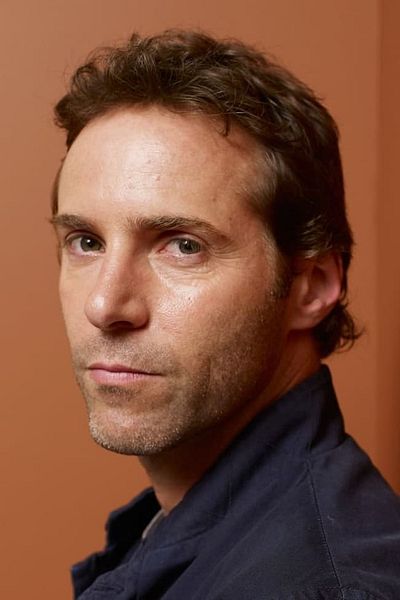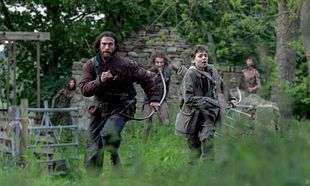Set almost thirty years before the events of 'The Sopranos', Dickie Moltisanti (Alessandro Nivola) takes young, impressionable Tony Soprano (Michael Gandolfini) under his wing as Dickie attempts to navigate the changing landscape of Newark's criminal underworld, as well as dealing with a tumultuous relationship with his father (Ray Liotta)...
Any list or ranking of TV shows over the past twenty years has to mention and include 'The Sopranos'. There is simply no getting away from that fact, such is the impact it had on the landscape of television.
Over the course of nearly a hundred episodes, the character of Tony Soprano was formed and given an intimacy never before seen in the crime genre. We saw him in therapy, sharing the innermost workings of his mind with Dr. Melfi, and in that, we learned of his past, his present, and whether he saw beyond his own choices. Tony's relationship with his mother, his children, his wife, his family, were all explored in detail and made for rich drama throughout the series. The story played out over years, and the performances by the cast matured and developed with them so that it hit its stride and rolled itself up by the end.
Naturally, a movie has to work on a much shorter timescale and the characters have to be introduced, explored, and given something to do. These efforts have to be compressed without losing texture. Even if it's based on something as ubiquitous as 'The Sopranos', we're still seeing them at a different time in their lives, therefore we can't necessarily cling to what we think we know of them. In 'The Many Saints of Newark', the focus is shrunk down to one, single character - Dickie Moltisanti - but the timescale in which we're given to understand him doesn't match up to the ambition. Instead of setting it over the course of a particular event, David Chase's script instead tries to run itself out over the course of years and the results, sadly, are mixed.
Alessandro Nivola's performance is easily the best part of the movie, not just because we have no preconceived notions of who he is. Rather, he gives Dickie Moltisanti life in every possible scene and is always working away at something. Many of his best scenes pair him next to Ray Liotta, and you can really see how much thought and process has gone into both of their performances. Liotta, in particular, shines bright whenever he's given a chance. Michael Gandolfini, playing the young Tony Soprano, cleverly eschews the gloom and brute force we recall of the character in favour of a much more believable, vulnerable performance. This Tony isn't going around curb-stomping people or strangling people. How could he? He's a teenager, caught between the pull of both his hero-uncle in Dickie Moltisanti, and his tormenter-mother, played with gusto by Vera Farmiga.
Long-time fans of 'The Sopranos' will recognise a good few of the supporting characters, but there's something very, very strange about it all. For one, the ages of certain characters seem to be way off from what makes sense in the show. On top of that, it feels like some of the performances hew closer to bad impersonation than actually playing an existing, recognisable character. John Magaro, for example, plays Silvio Dante like it's a comedy bit. Corey Stoll, who plays Corrado 'Junior' Soprano, seems to base his performance on repeating one particular expletive involving a sibling over and over again. A number of lines and scenes are thrown into the movie simply to call back to something familiar from the show, rather than serving any purpose for the story.
Indeed, David Chase's script feels less occupied with the story and more with the characters. Whereas 'The Sopranos' had several episodes or even an entire season to find its way in a story, here in 'The Many Saints of Newark', there's less detail and space for that to occur naturally. A few strands and ideas, such as Leslie Odom Jr.'s character trying to bring together a black-owned criminal organisation, never really gets a chance to form properly and end up only frustrating things. Jon Bernthal, who plays Johnny Soprano, only has a handful of scenes and is almost a non-presence in the movie. There are so many missed opportunities here that you can't help but be frustrated by how it all plays out.
Had 'The Many Saints of Newark' been turned into a series, even a limited-run event ála 'And Just Like That', there might have been something here that could have worked better. The characters, even the ones newly minted for 'The Many Saints of Newark', are nuanced and intriguing, yet they're hamstrung by the very limitations of a movie. We are never given a chance to see them flourish because the movie cuts itself up so abruptly that nothing ever takes root.
It could be that our own expectations were too high for 'The Many Saints of Newark', and that anything that followed 'The Sopranos' would always be compared to it and come up short. Like young Tony Soprano, 'The Many Saints of Newark' seems to lurch awkwardly forward and never truly finds its feet. There are glimmers of something wonderful here, but so much of it seems to be cut short or only half-formed. It never had the makings of a crime classic.



















































































